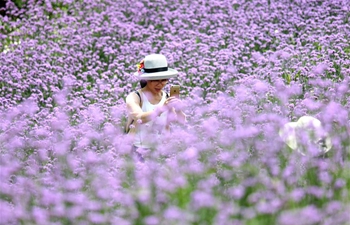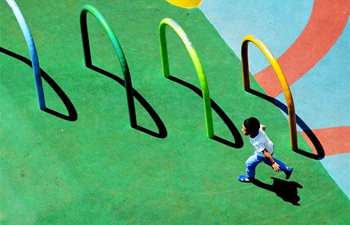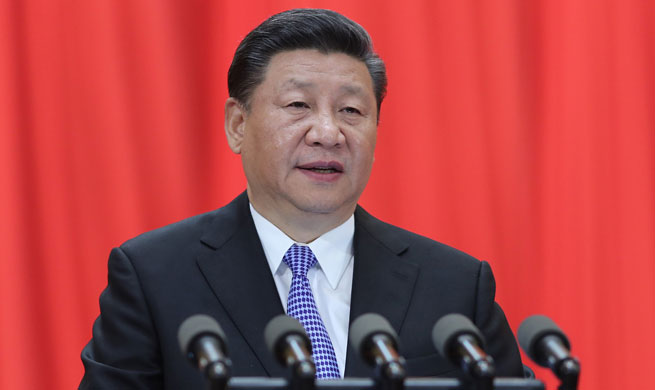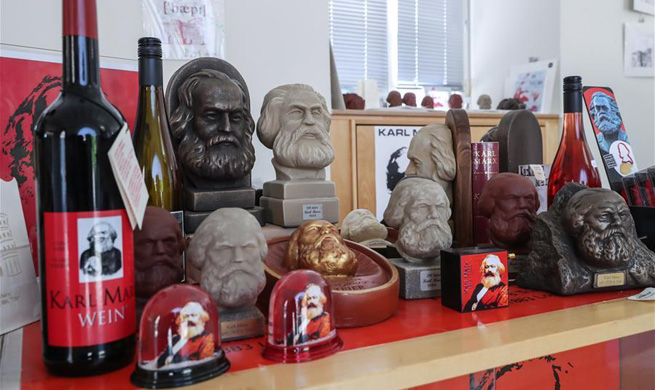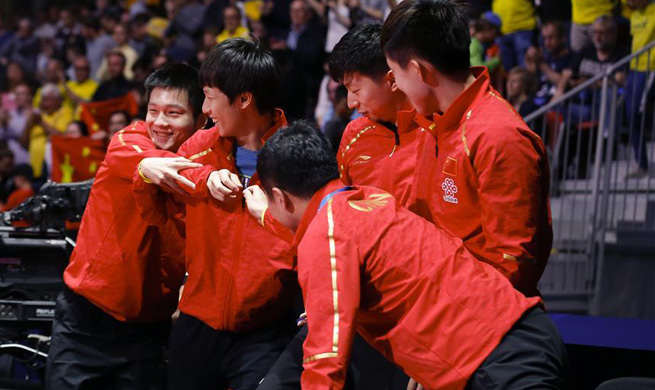BEIJING, May 5 (Xinhua) -- A tweet of three photos of 18-year-old American student Keziah Daum wearing a qipao as a prom dress was enough to create an international storm.
Daum's April 22 tweet was criticized by a number of netizens, including several of ethnic Chinese origin, who said that wearing the traditional body-hugging one-piece dress was "cultural appropriation."
Despite negative comments saying it was inappropriate for her to wear the traditional Chinese dress, the vast majority--including many Chinese-- supported the teenager from Utah.
"As a Chinese, I think this girl looks great in that qipao," said the top comment in a popular article about the debate on China's social network WeChat.
"Shouldn't such a beautiful dress be popularized and known by more people?" another comment read.
According to a poll in the South China Morning Post, 96 percent of readers thought it was okay for non-Chinese people to wear a "cheongsam," another name for the qipao.
For many, the incident merely showed the growing popularity of the qipao in recent years.
"While some aspects of the incident could be further discussed, there is no doubt that qipao has now become one of the popular cultural signs internationally," said Zhang Yiwu, professor at Peking University.
From Keziah Daum to high-level international exchanges, numerous occasions have showed the qipao a much loved fashion item.
At the Boao Forum for Asia annual conference in April, a specially designed ethnic Chinese style qipao was chosen as the costume for assistants.
The dress is on China's National Intangible Cultural Heritage. In February, a large qipao exhibition was held in Paris, with various traditional qipao displayed and French models wearing the qipao on stage.
"The qipao is the clothing with the most prominent Chinese characteristics for foreigners," Yan Zhenquan, director of the China Cultural Center in Paris, told Xinhua. "The qipao fashion presented the crowd with a vivid image of traditional Chinese clothing that never stops innovating."
Often regarded as a symbol of traditional Chinese culture, the tightly-fitting dress in its modern form was created in Shanghai in the 1920s and has always adapted with the times.
"A qipao can fully show the beauty of female curves and make them look more elegant," said Qiu Liming, chairman of Manloulan, a famous qipao manufacturer.
The Shanghai-based brand aims to attract more women to wear the qipao in their daily lives, and has made a series of adjustments to the dresses such as modernizing the patterns, embellishing them with crystals and collaborating with foreign designers.
"We also added a lot of fashionable and youthful elements to our designs, and even started to teach our customers on how to match their qipaos with western clothes to make them look smarter," he added.
Modern qipao styles, such as bright-colored plaids pattern, cuffs with lace, and much shorter dresses than traditional ones can found in many online stores in China now. After all, it is down to its inclusiveness that the qipao has become so popular worldwide.
"While it perfectly fits the body shape of oriental females, it also fits anyone with a slender body," said Zhang Yiwu.
Qiu Liming believes that although the qipao is a cultural symbol of China, it should not limited to certain people or cultures.
"The qipao shows the beauty of the oriental world, and it welcomes anyone who likes to embrace such beauty," Qiu said.




